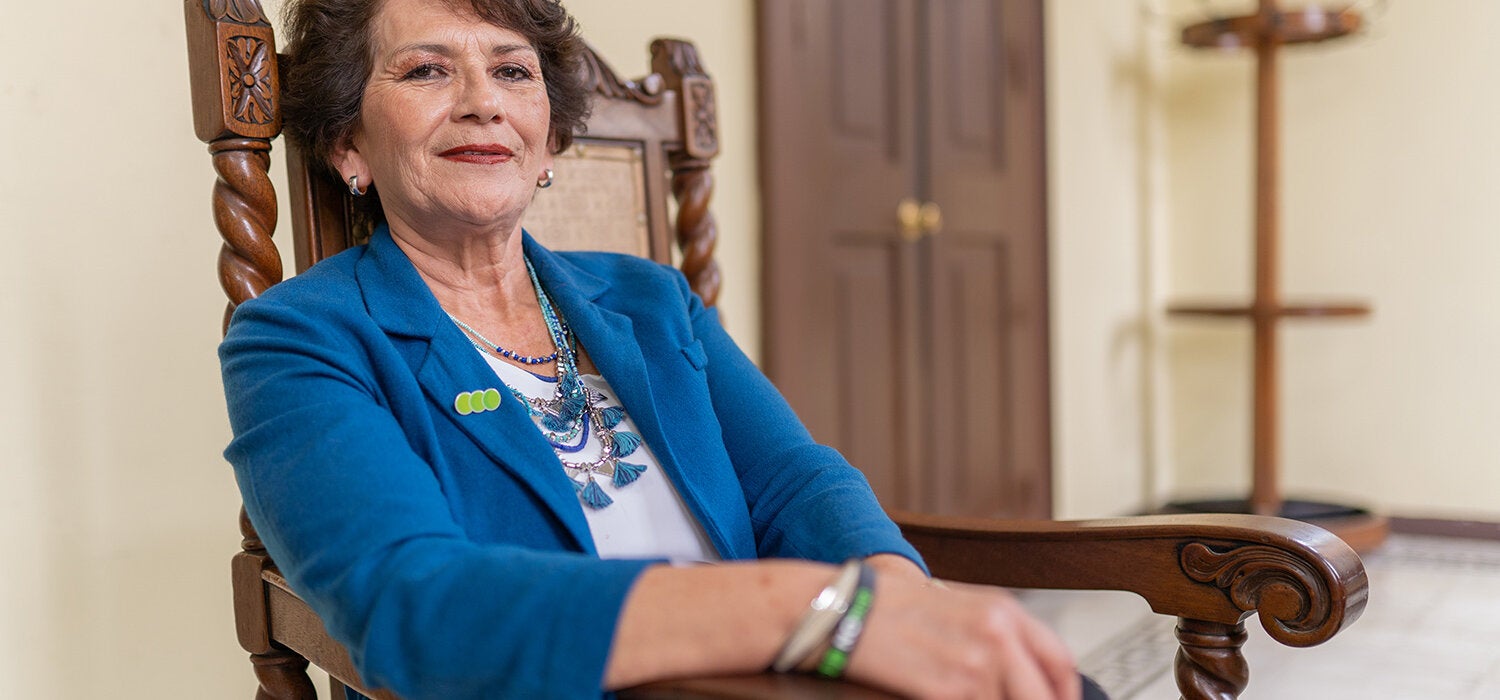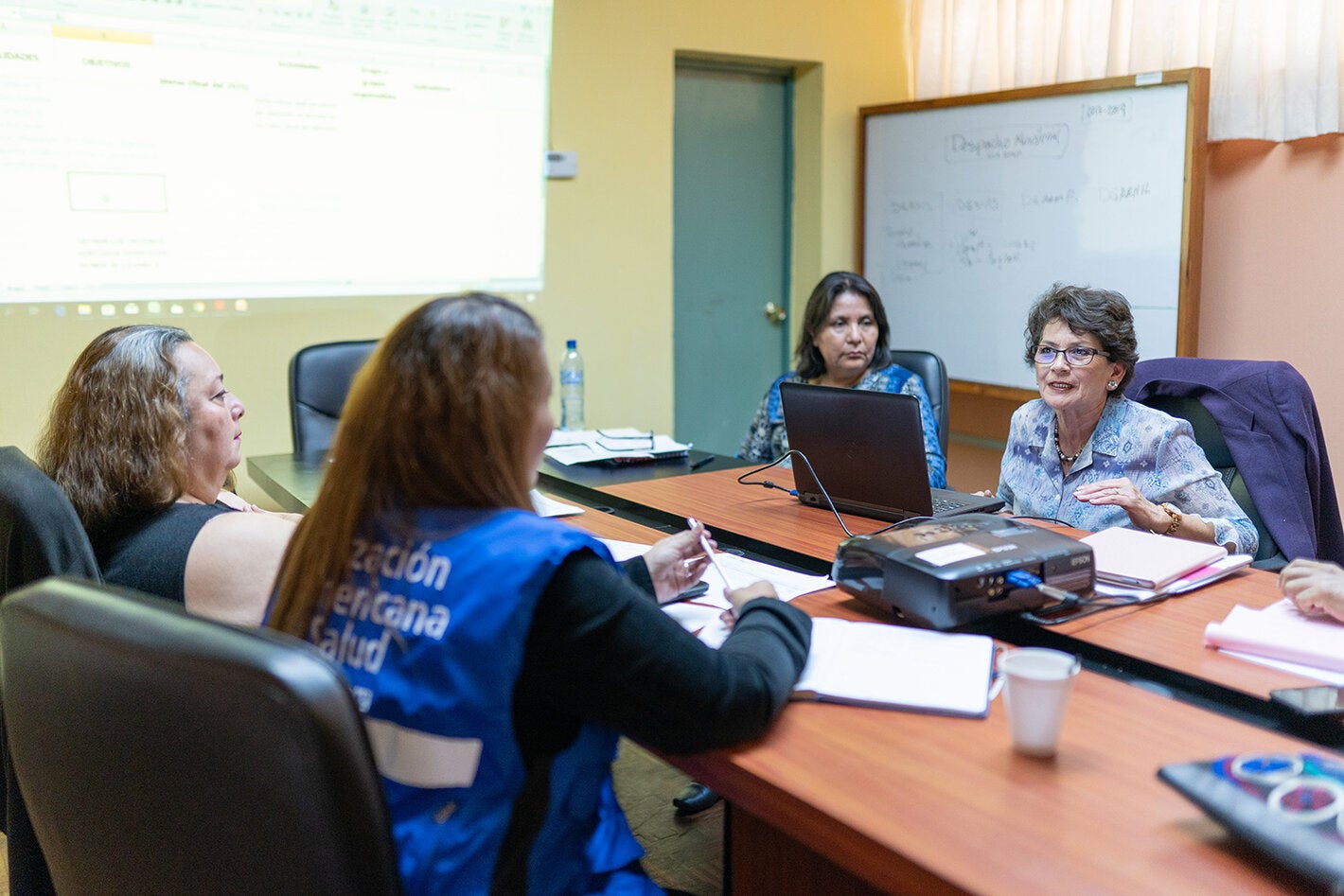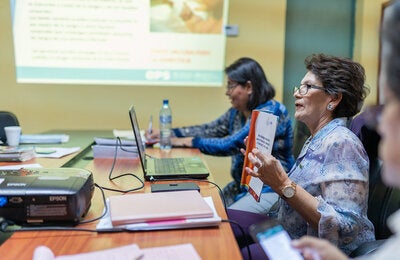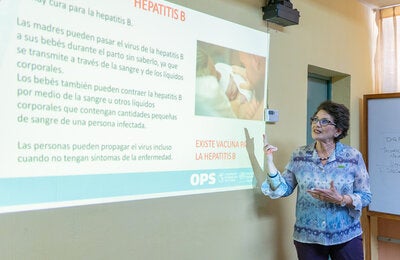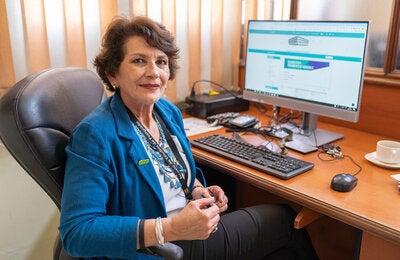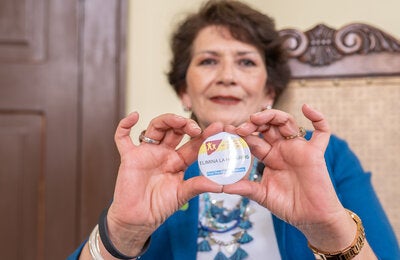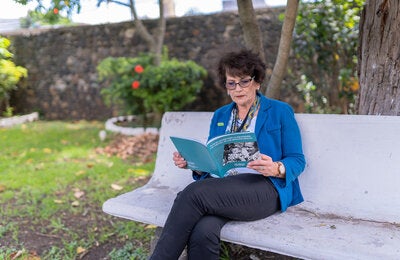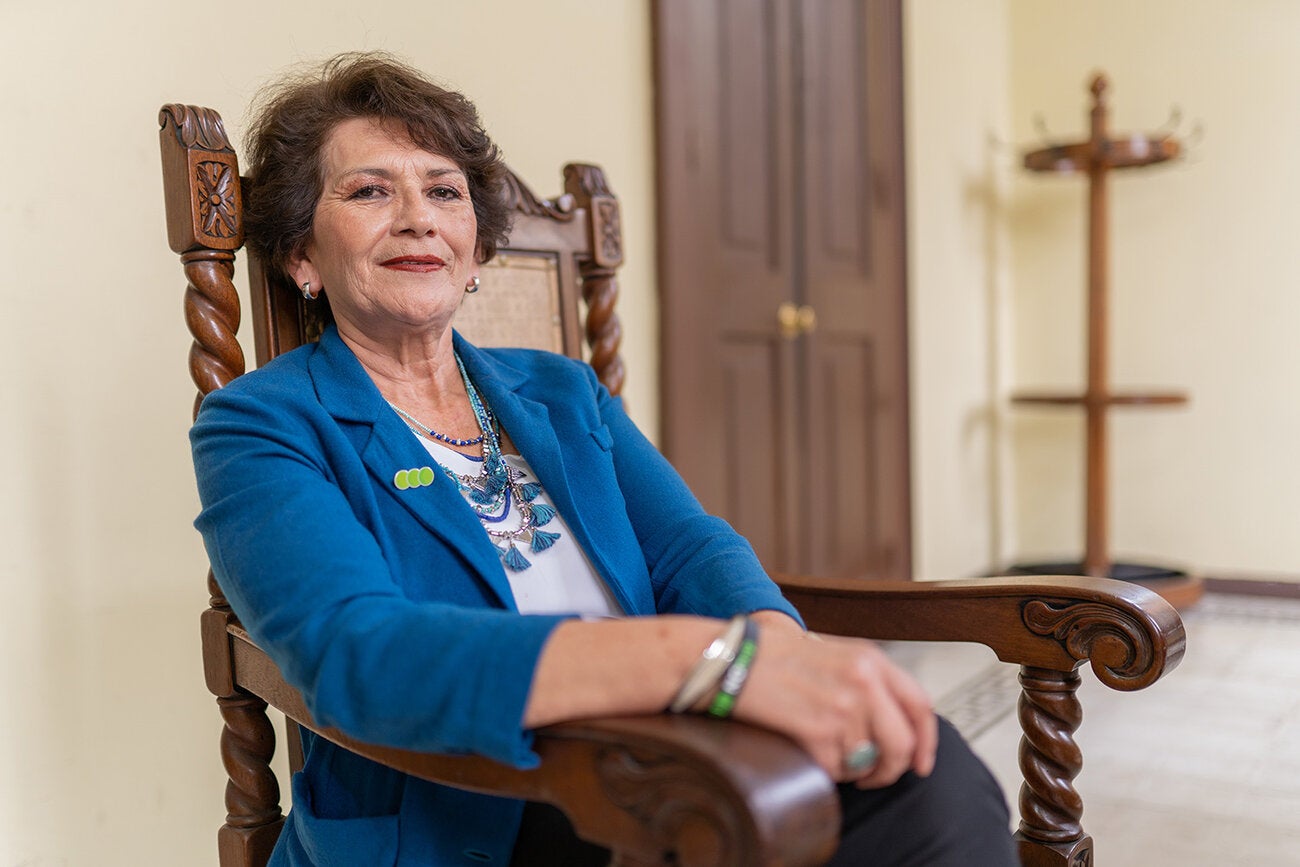Guatemala, July 2019 (PAHO/WHO) - When Dr. Ana Patricia Vélez (62) was diagnosed with hepatitis C more than 20 years ago, nucleic acid testing to diagnose the disease was not available in Guatemala and there was a major lack of awareness and painful stigma associated with its transmission. But Patricia, unlike many others, was able to send samples abroad to receive a diagnosis and three years ago she could purchase and get the treatment that finally cured her.
In 1997 when she was providing counseling on hepatitis, Patricia treated a man who changed her life. “It was like seeing someone who had received a death sentence. He had even prepared a will,” she recalls. She told him that she had also had hepatitis C and intended to live many more years, which gave the patient hope. At that time, she told herself that she had to do something, and the following week, she, her husband, and a few colleagues founded the Guatemalan Liver Association (AGH).
While living with hepatitis C, a virus that can cause liver failure (cirrhosis) and liver cancer, and is usually transmitted through the blood to blood contact, Patricia faced discrimination and ignorance, including from other health professionals. “I remember one time when I had taken a trip to Japan and some people said to me: ‘We know what you went there for,’ because they attributed hepatitis C to promiscuous behavior,” she said. However, this type of attitude never stopped her.

